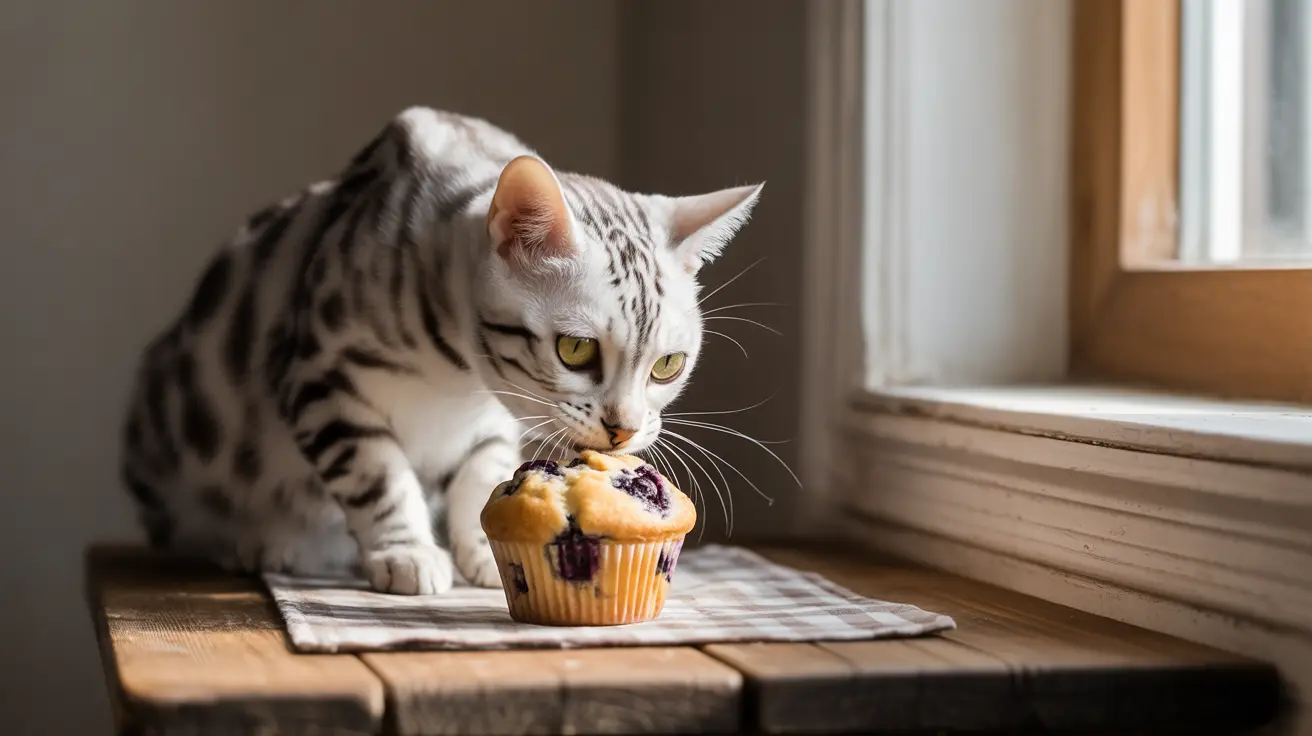Understanding Cats' Unique Dietary Needs
Cats are obligate carnivores, which means they require a diet primarily consisting of meat proteins and animal-based nutrients. Unlike humans, cats have evolved to process very few carbohydrates and don't need sugary foods in their diet.
Their digestive system is specifically designed to break down animal proteins, with minimal capacity for processing the complex carbohydrates found in baked goods like muffins.
Why Blueberry Muffins Are Dangerous for Cats
Harmful Ingredients
Blueberry muffins contain several ingredients that can be problematic for cats:
- Sugar and artificial sweeteners (potentially toxic)
- High-fat content from butter and oils
- Refined flour and other complex carbohydrates
- Possible toxic additions like chocolate chips or raisins
- Dairy products that can cause digestive issues
Health Risks
Regular consumption of muffins can lead to serious health issues in cats:
- Obesity and weight management problems
- Diabetes mellitus
- Digestive upset and diarrhea
- Pancreatitis
- Dental problems
The Truth About Blueberries and Cats
While blueberry muffins are unsafe for cats, plain blueberries themselves are non-toxic and can be offered as an occasional treat. However, they should only make up a tiny portion of your cat's diet, if any at all.
The antioxidants in blueberries might offer some health benefits, but cats don't require fruits in their diet to maintain optimal health.
What to Do If Your Cat Eats a Blueberry Muffin
If your cat has consumed a blueberry muffin, take these steps:
- Check the muffin ingredients for toxic components
- Monitor your cat for unusual symptoms
- Contact your veterinarian if you notice:
- Vomiting or diarrhea
- Lethargy
- Loss of appetite
- Unusual behavior
Safe Alternatives to Human Treats
Instead of sharing blueberry muffins, consider these cat-appropriate treats:
- Commercial cat treats formulated for feline nutrition
- Small pieces of cooked, plain meat
- Veterinarian-approved dental treats
- Specially formulated cat grass
Frequently Asked Questions
Is it safe for cats to eat blueberry muffins or are they harmful?
No, blueberry muffins are not safe for cats. They contain ingredients that can be harmful to cats, including excess sugar, fats, and potentially toxic additives. These ingredients can lead to obesity, diabetes, and digestive problems.
Can cats eat plain blueberries, and how many are safe to give them?
Yes, cats can eat plain blueberries in very small amounts. One or two berries occasionally is sufficient, but they should never make up more than 10% of your cat's daily caloric intake.
What ingredients in blueberry muffins are toxic or unhealthy for cats?
Harmful ingredients include sugar, artificial sweeteners (especially xylitol), high-fat content from butter and oils, refined flour, and potentially toxic additions like chocolate chips or raisins. Some muffins may also contain dairy products that can cause digestive issues in cats.
What should I do if my cat accidentally eats a blueberry muffin containing harmful ingredients?
Monitor your cat for symptoms of distress and contact your veterinarian immediately if you notice vomiting, diarrhea, lethargy, or unusual behavior. If the muffin contained known toxic ingredients like chocolate or xylitol, seek emergency veterinary care.
Are there any healthy human foods or treats recommended for cats instead of muffins?
Yes, small pieces of plain cooked meat, commercial cat treats, and veterinarian-approved dental treats are safe alternatives. Always choose treats specifically formulated for cats' nutritional needs.
Conclusion
While sharing our food with our feline friends might seem like a way to show love, it's essential to remember that cats have specific dietary needs that differ greatly from humans. Blueberry muffins and other baked goods should be kept away from cats to ensure their health and well-being.
Instead, focus on providing your cat with a balanced, species-appropriate diet and cat-specific treats that will keep them healthy and happy for years to come.






